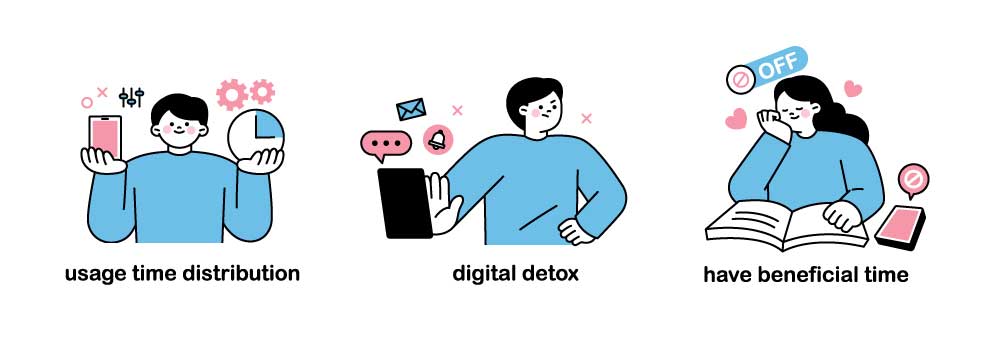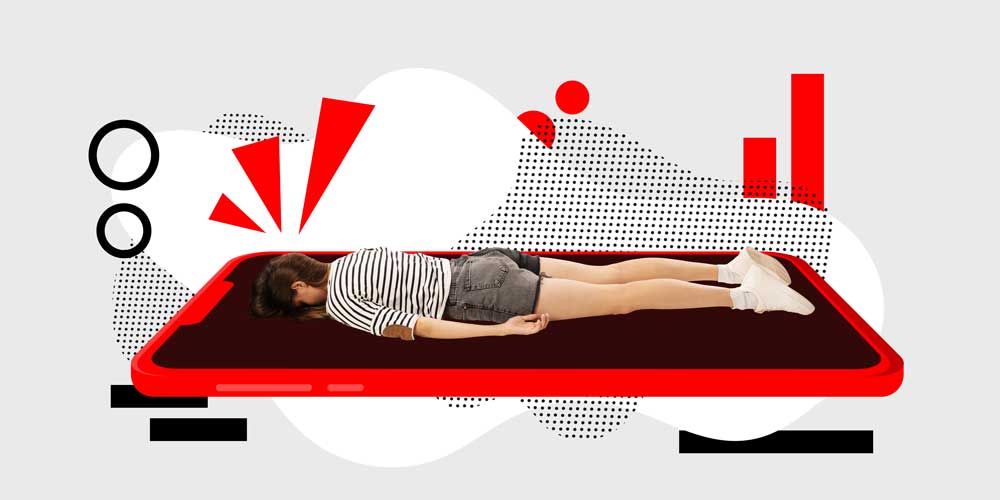The excessive usage of media and technology has resulted in adversely impacting our mental health, relationships and overall well-being.
Let’s first understand how the digital world gradually affects our life, sometimes subconsciously.
Whether it is social media, our phones, laptops, LIVE streaming services or various other gadgets, we are constantly surrounded by notifications and screens. Most of our work also centres around tech gadgets. This excess has led to tech addiction. The inability to detach has affected our mental and physical health both individually and as a society.

How can we cut down on mindless usage and consumption of these gadgets and apps?
A weekend digital detox can be an effective solution.
Screen time drains a lot of our energy, whether we realise it or not. The constant use of mobile phones can cause anxiety, stress and the constant feeling of being overwhelmed. This in turn negatively impacts mental health. While weekday digital detoxes may not be feasible, you can always consider weekends.
Here are some tips to get you started.
1. Set boundaries – You’re the best person to decide when things are getting too much for you to handle, whether it's endlessly scrolling through content, playing video games late into the night or withdrawal symptoms from being away from the phone for a few hours. Once you have figured this out, set boundaries for yourself to detox.
2. Indulge in offline activities - Any game, sport or activity that doesn’t involve screen time is a great alternative. This could include tennis, dance, hiking or even cooking.
3. Connect with nature - This helps your body and mind realign and makes you feel lighter and better. Go for walks in nature, spend time alone in the outdoors, meditate and observe the natural sounds of birds or ocean waves around you.

4. Practice mindfulness - Deep breathing, yoga and meditation are some ways to help you rejuvenate and feel better from within. In fact, these practices also help in improving overall health in the long run.
5. Prioritise in-person interactions - Visit each other rather than chatting over WhatsApp, play a sport or a board game together and engage in communal activities such as cooking or hiking. These activities also help people maintain good mental health.
6. Create tech-free zones - Identify spaces or corners in your house or workplace where you can temporarily completely disconnect from technology, especially your phones and computers.

7. Pause notifications - This can be practiced even during weekdays. Decide on timings to block notifications and pop-ups that might add to unnecessary distractions. This really helps to focus on important tasks during the day and saves time.
8. Start small - Take one step to begin with, rather than attempting too many things all at once. Start by resisting the urge to check your phone in the first hour as soon as you wake up. Prioritise other chores that usually get sidelined otherwise.
9. Talk to your folks about the detox - Open up to your family and friends about how you want to take measures towards this digital detox. Request them to support you in your efforts.

10. Attend retreats - There are a number of retreats that can help you connect with nature and yourself. Consider attending them once in a while for your own mental peace. These could include spa treatments, meditation and creative expression workshops.
Lastly, it's imperative never to ignore feelings of being burdened, heavy or anxious for unidentified reasons. The digital world might be playing a key role in making you feel this way. Follow these tips to experience a vast positive difference in your life, leading to better physical and mental health.